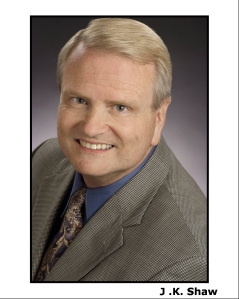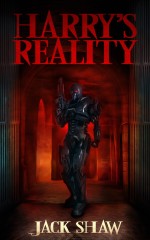This is an important question. Can we create a god? Not in our minds, hearts or souls, but in science. First, this is not a religious debate. Second, I don’t wish to offend anyone with this rhetoric. The big question is can we create a deity, or something that defines our definition and criteria? Some would say it’s all in our minds… We still need a criteria.
How about we play with the definitions–just those that appear in our society today?
We have gods and a god concept in our minds. Our definition of a personal god is easy; we are taught what defines the presence of one in our lives. Most of us believe in something whether it is spiritual or science, i.e., the Christian vs the atheist, or it could Islam versus the Unbeliever It’s not really that complicated is it?
Ironically, some people know the definition because their religion tells them, but allow “other gods” to exist in their imaginations–not believing but accepting another god concept for a moment.
We all will accept that a character on a screen, in a book, or even people in reality may be god-like totally separate from our beliefs. For example, super heroes–Thor in particular is a demi-god; Hercules is also. They come from the past but we accept them for the sake of a good story. Maybe there’s more.
Mythology, of course, is full of gods, many of them the basis for a people’s religion. Some doctors have a god-complex. Kids are told through stories that some beings are superior in such a way as to be gods. Fantasy tales, for example.
Science fiction plays with the concept as well. It depends on how we define god. Belief systems have a criteria, or you wouldn’t believe. Sure, we all believe in truth, but we “humanize” everything. As we do so, we are pretending we live in a different world. From talking to our pets to reincarnation–a whole different matter.
Then, there is the concept of power. Why do some want it or need it?
Who wants to be in charge of everyone or be responsible for everyone?Those who really believe they are gods are institutionalized away somewhere away from us sane people.
Is it supreme intellect, the ability to create miracles, or have super powers, or by virtue of being a more powerful species overall?
The last would make us all gods, wouldn’t it? It is the basis for many myths that include two worlds, one stronger and more powerful and a lessor one, subservient to the first.
In Makr’s Shadow, humans save their planet from self-destruction. To do so, scientists create a super cyber server by combining the power and data available in the world in one place. The idea is that the machine can make all the hard decisions needed to save the earth so neglected by humanity. Unwitting, they have created a monster that believes he is a god–the only one on the planet. Nothing on earth is more powerful. I didn’t set out to discuss the question in my novel. The idea and discussion evolved as I imagined the society, and the splintered groups, in particular, that go separate ways. While ninety percent of the population are under Makr’s spell, ten percent are not.
These humans are unpredictable. It’s not belief or disbelief in a deity; they resist as humans do–to change. However, that group naturally splinters into smaller groups of varying beliefs and other reasons, some being just survival. This splintered society is our society.
We are all different, but that’s about to change when a man appears who is unique to both groups. Is he a freak of nature, a missing link, or a messiah? Makr creates memories and realities proper to run a Perfect Society. In this society, there is no dissention, no laws, no feeling or thought that cannot be controlled and managed.
That is, except for one man–an anomaly named Harry Bolls who can see through illusion. He doesn’t know how or why he is able to do this, and he has lost a chunk of memories. It is enough to send him on a quest for the truth.
Is the world around us real or an illusion? Is reality what we see, we think we see, or what we know? And, how do we know it?
Whereas the omniscient Makr, as the most powerful and intelligent being on the planet believes Himself to be a god. In Makr’s Shadow, the truth is not so simple. Anymore, and I give away the ending. Rather than face religion head-on, I tried to create a satirical situation begging the age-old question: which came first the chicken or the egg? Or, in this case, Makr’s goal is to make humanity believe, in fact, that they are Bios–simply a weaker species of machine using a biological design.
Why doesn’t Makr delete the humans and clear the planet in favor of better, more controllable inhabitants? Human behavior does not compute; it’s not predictable. Could it be he wants to know all that the humans know before he eradicates the entire race? Still he has to fight those who attack his PerSoc.
Do we know the minds of the lower species? In this case, Homo sapiens sapiens. What happened to Homo sapiens neanderthal? We can only speculate, but the fact remains, our species survived and theirs did not.
In Makr’s Shadow, the social sciences are at work, too. As is the psychological impact of living in such a society. Would we one day be willing to live in a world that had no consequences, or design a life of our choosing? It’s tempting. Some humans worship Makr as a means to personal survival, believing that a superior being must be merciful. Even the splinter groups recognize Makr’s superiority and power. However, they are only admitting that there is a sentient being of superior intellect, strength and power is worthy of the highest respect.
If we compare Cyber and Bios as separate species, which they are obviously, there are differences. Makr has created a “race” of Cyber or specialized cyberts. Each is task-oriented; each one in its place. Cyber appear superior to Bio machines in intellect, adaptability, strength and durability. But no human is exactly the same (except in the subset) and so unpredictable. A human’s place is where he or she chooses in the theoretical world. Unfortunately, that isn’t always true in reality.
Is Makr a god? For his Cyber maybe. The rest is for you to decide.
In Makr’s Shadow is available wherever e-books are sold.





